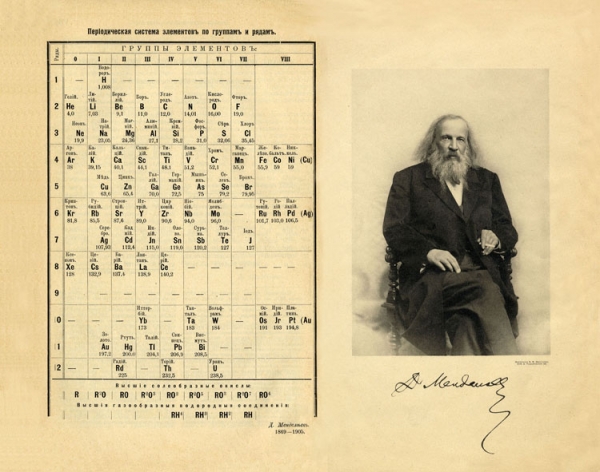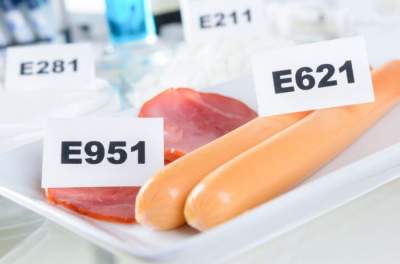
Why chemicals in food and food supplements should not be scaring people, says chemist flavorist Sergei Proteins.
“Chemical food” is a horror story of our time. People don’t want to eat harmful chemicals, you want to eat healthy, organic food. But what they mean by this, for the most part, myths, tells in his lecture chemist Sergei Proteins.
In relation to food chemistry it is used today as a curse. But because chemistry is a fundamental property of our world, from chemicals is everything, including man himself. And food is no exception.
The first myth is that there may be food without chemistry. . Chemicals in food — 100%.
Cranberries should be forbidden, it’s an overdose of preservatives, additives, cranberry, food
Share
Share with friends Share on Facebook send to Twitter to Tell Vkontakte Share with friends Create demotivator to Add the inscription on the photo
The other question is, do these chemicals in food from nature or synthesized by man.
The second myth is that all natural is useful, harmful and faux. Actually natural differs only in that it occurs in nature, and only that.
Natural not useful. Here’s an example: forest fires are a natural phenomenon, such as death from smallpox, and the steam heating was artificial. And what is helpful and what is harmful?
Another myth is that any kind of artificial food additives is an invention of recent times.
The world’s first artificial flavoring was invented by the man who was frying the meat, because the smell of the roasted meat does not exist in nature.
The smell and taste of grilled meat is the result of interaction of substances that exist in raw meats, while heating. And chemical interaction. The smell and taste of cheese is too artificial, because in nature there is no cheese. But man learned to make this product for quite some time, and the purpose of creation was not the improved taste, and the desire to preserve the chemical milk.
Many plant substances that we tend to think useful only because they are natural, are actually chemical weapons plants.
They are selected by evolution in order to cause maximum harm to anyone, who wants to eat the plant. Many are poisons. For example, caffeine in plants acts as a insecticide: protects it from insects. Generally coffee can safely assume that a mixture of insecticides and fragrances, and the smell of coffee in fact, artificial.
Green coffee does not smell, and the “natural” smell of coffee is the result of artificial chemical reactions that occur in grains during heating.
Cranberries should be forbidden, it’s an overdose of preservatives, additives, cranberry, food
Share
Share with friends Share on Facebook send to Twitter to Tell Vkontakte Share with friends Create demotivator to Add the inscription on the photo
What, for example, vanillin, which we add in all kinds of confectionery products as a natural flavouring? From a chemical point of view vanillin is an aromatic phenol and an aromatic aldehyde at the same time.
I’d rather not have that.
In the famous vanilla pods vanillin from nature no, it appears in them only after ripening and abscission. Vanillin does not need the plant, its goal is to protect seeds from harmful fungi and bacteria. This substance, which protects plants from being eaten, and only by chance it taste like the person that doesn’t speak about its usefulness.
The same with mustard. The main function of allylisothiocyanate, which owes its pungency mustard, to deter insects and larger herbivores. As such it is not in the plant: it starts to build up only when the damage to the tissues of the plant. Its synthesis is triggered at the time damage leaves or seeds to maximize damage to the pest.
And only people have learned is what is coined as a toxin, and call it useful. To call harmful the same substance obtained by chemical synthesis.
Toxic substances for insect control are also contained in the cucumber bumps. A people, anything eats. In almonds and apricots contains a very strong poison, cyanide, hydrocyanic acid. And this does not prevent the man of pleasure to use them.
Molecules that create the scent of an orange, located in the zest and formula is more similar to gasoline than on food, protect juicy pulp, and so attract us by its smell.
Speaking about food additives, the most frequently mentioned monosodium glutamate: he and bouillon cubes, and sausage, and sausages. But it is this substance that determines the taste of meat — so-called umami, essentially the taste of protein. It was opened by a Japanese Professor Ikeda and in 1909 he patented a method for its production. But long before that glutamate was the most common chemical molecules in our food. It is this substance that gives the taste of the sausage, the ham and any other meat products. Glutamate gives the taste of tomatoes and its concentration increases during ripening. Red green tomato tastes better partly because it has more glutamate. People just learned to get MSG method bacteriological synthesis. And this artificial glutamate, according to the atomic-molecular theory, is no different from the natural.
Supplements on the product packaging marked with the letter E with a different numerical indexes. And this letter often scares the customer.
Although this is only indicates that the product contains well-defined and tested ingredients.
Often the same substances are abundantly present in natural products. For example, Apple has a much larger set of different E than in any finished product. Although, in fact, it doesn’t matter: the origin of a substance does not determine its properties.
Cranberry contains sodium benzoate more than you are allowed to use when canning food.
If cranberries spanning tolerances on the content of preservatives, it should be forbidden, it’s an overdose of preservatives.
What’s that for exactly? To be protected, to prevent mold and bacteria to eat berries and seeds. But nobody on this planet guessed to suspect cranberries in what I suspect preserves or drinks. On the contrary, many people drink cranberry because of its beneficial antimicrobial properties, which, however, exaggerated.
Parabens (esters of paragidroksibenzojnoj acid) is a natural substance that plants use to protect themselves from pests. They are used mostly in cosmetics. And their fear too. It is often possible to meet advertising of the so-called cream without parabens. But maybe it’s only in three cases: 1) if is safe and proven parabens in the cream added some less known and studied preservative; 2) cream stuhnet immediately after opening; 3) the manufacturer is no fool and added parabens, but for fashion, I lied.
Sodium nitrite is another subject of horror stories.
To find it in the sausage easy sausage fashionable gray color does not contain sodium nitrite. But don’t buy this sausage.
Before sodium nitrite added to the sausage, the so-called sausage disease botulism — was quite ordinary phenomenon. The word “botulism” derives from Roman “sausage”. Sodium nitrite reliably kills the bacteria producing the deadly toxin. And if we talk about quantities, 1 kg of spinach or broccoli you will be given the same amount of nitrite, as much as 50 kg of doctoral sausage.
But the story of caviar, the gourmet product, which for a number of reasons, very prone to damage. For preservation of caviar recently used the substance methenamine (E 239), which since 2010 in our country was banned.
But it’s the only preservative that worked in the calf. And now caviar either goes out, or there are many other preservatives, more than allowed.
Either it still good and safe but forbidden by the hexamine. Forbidden hexamine was because it decomposes during storage with the formation of formaldehyde is a poison. But nobody thought about the numbers. It is formed minuscule. Yes and the eggs we don’t eat spoons. Besides the same amount of formaldehyde that can be obtained with the jar of caviar with hexamine, you can get by eating one banana.
Another myth is associated with harmful sweeteners that people who want to lose weight, use instead of sugar.
For example, aspartame is completely understandable molecule, with a clear effect, and there are hundreds of studies confirming its safety.
A very common myth is that “natural product of what is known, and what was nasanazirace, solid impurities!”. This is complete nonsense. For example, if you compare the grass and tarragon soda for flavoring, natural tarragon impurities anymore. In soda they are all known, and in the grass we don’t know what could be formed. In natural coffee chemicals much more (nearly a thousand), and their properties studied much less than in an artificial coffee flavoring. Total to date in the food products found more than 8 thousand fragrant substances. Of these, about 4 thousand authorized for use as flavourings, and their properties were studied, they were found safe. About hundreds of such substances is prohibited: they were harmful. And about 4 thousand no verification never took place. Thus, consuming the flavor, you are guaranteed to consume only substance among the tested 4 thousand
By consuming natural, you eat everything and proven safe, and untested, and definitely proven harmful.
Finally, the lovers of all things natural in the store will choose sausage or ham with natural smoked and not smoked with liquid smoke. And from the point of view of safety choose a much more dangerous product. Neither is the best choice from the point of view of health. But natural the smoke contains tar, carcinogens, in the production of liquid smoke are separated. Artificial actually Smoking much safer natural. Though not as tasty.
“We want to know the truth about food!” — under such slogans are advocates of natural food and chemical opponents. It’s great when people want to know the truth. Only here it is better to seek the truth not in TV and not on the women’s forums. And to begin with a textbook on food chemistry.
The truth about food is that any food is composed of chemicals. The truth is that if a person makes himself food, he knows what he’s doing and checks it for safety.
The truth is that food chemistry is also the science that makes our world a better place. And another truth is that by consuming only natural food, relying on nature, you are making a mistake. Nature is not obliged to take care of our security.








